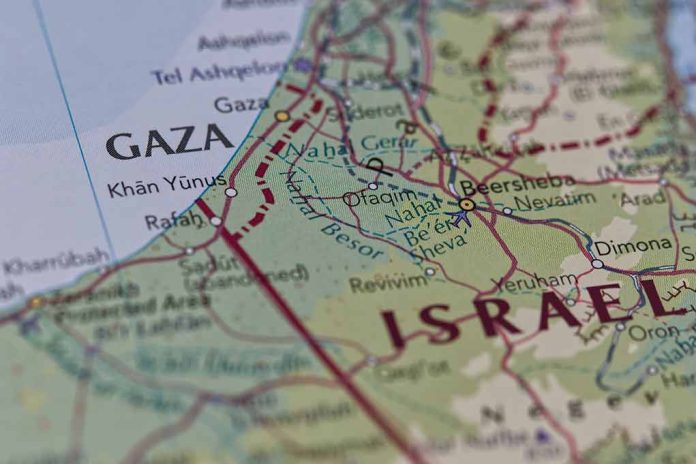
The United Nations’ cash transfer initiative in Gaza, designed to address humanitarian needs, has mutated into a financial funnel feeding Hamas, posing ethical concerns.
Key Takeaways
- UN cash transfers in Gaza are financially benefiting Hamas.
- Hamas exploits its position to gain from aid money flows.
- Efforts to prevent cash exploitation include exploring alternatives like e-wallets.
- High conversion fees affect residents’ purchasing power.
- Israel’s attempts to weaken Hamas’s financial network met resistance.
Background of UN’s Cash Transfer Programs
United Nations agencies, including the World Food Programme and UNICEF, have established cash transfer programs in Gaza, intended to support the local population facing dire economic conditions. These cash aids reach thousands of families, with the objective of helping them acquire basic necessities such as food and medicine. However, the integrity of these programs has come under scrutiny as reports indicate that Hamas, the controlling entity in Gaza, is exploiting these funds for financial gain.
Hamas uses its governing position to control the fund’s flow, imposing steep conversion fees when residents attempt to convert digital aid into cash. These fees, ranging from 20% to 30%, substantially reduce the aid’s purchasing power. This manipulation has resulted in the establishment of a shadow banking system within the region, further agitating the economic distress faced by Gaza residents.
Ethical Concerns and Aid Management
The ethical challenges surrounding this situation are profound. The siphoning of humanitarian aid by Hamas has prompted global discussions about the effectiveness of current digital monetary systems in conflict zones. Attempts by Israel to disrupt this exploitation include a proposal to cancel 200-shekel bills, targeting the financial mechanisms benefiting Hamas. Despite such efforts, Hamas’s entrenchment in Gaza’s financial systems has proven difficult to dismantle.
“This is yet another example of Hamas showing a complete disregard for the people of Gaza – and exploiting systems and infrastructure to sustain their murderous terror machine,” said Danny Danon, Israel’s Ambassador to the United Nations.
The introduction of digital cash payments via e-wallets by UNICEF is a step towards mitigating cash conversion issues. Despite these efforts, the severe food insecurity and steep inflation rates persist, emphasizing the need for a more robust system that guards against terrorist appropriation of aid.
International Response and Future Prospects
The international community’s response has been mixed. While the UN Security Council has addressed issues of terrorist financing, there remains criticism directed towards aid agencies for their perceived neglect in curbing Hamas’s misuse of funds. The challenge remains for global agencies to transparently and effectively deliver aid without enriching those who perpetuate conflict in the region. The exploration of innovative financial mechanisms like digital wallet systems continues, positing a potential path forward in safeguarding humanitarian efforts.
“If an investigator in Israel can figure it out, the aid agencies either knew or should have known. Twenty to thirty percent is just ridiculous. That’s extortion. It’s what some have politely described as a ‘revolutionary tax.’ In fairness, the aid agencies might argue they had no alternative. It is the cost of doing business, but it would have been better if they were honest about it from the start,” said Peter Gallo, an international lawyer and former Office of Internal Oversight Services (OIOS) investigator at the UN.
With half of Gaza’s population dependent on these cash aids, the stakes are high, necessitating a concerted effort to ensure that humanitarian assistance reaches those in need without bolstering the administrative financial channels of Hamas – an effort that could serve as a precedent for similar conflict regions globally.





